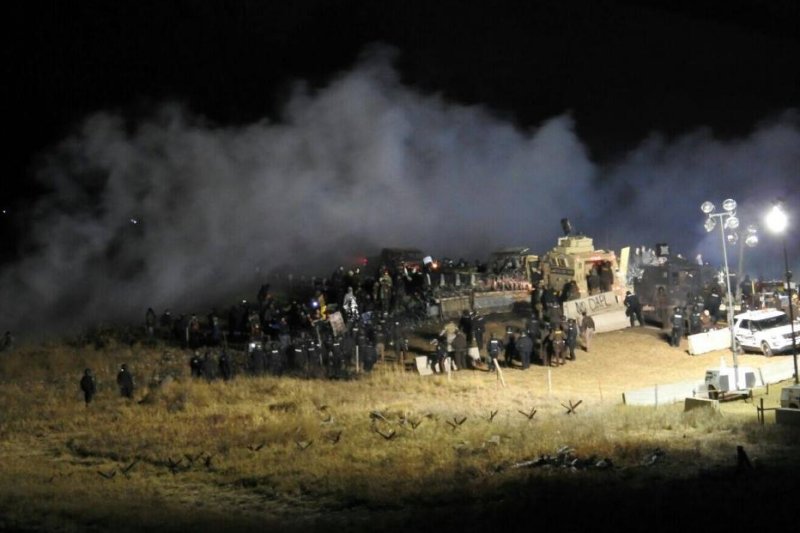North Dakota authorities say protestors settling in for a winter of demonstrations against the construction of the Dakota Access oil pipeline. Photo courtesy of the Sheriff's Department in Morton County, North Dakota,
MANDAN, N.D., Nov. 21 (UPI) -- Law enforcement personnel in North Dakota said protests against the Dakota Access oil pipeline escalated into riots, with activists settling in for the winter.
The Sheriff's Department in Morton County, N.D., said its troopers were working Sunday evening to control what they described as a riot on a bridge north of a protest encampment. About 400 demonstrators were reportedly moving against law enforcement personnel.
Fires were reported on the area's Backwater Bridge, which was closed by the state highway authority after protests in late October.
Morton County Sheriff Kyle Kirchmeier said Friday it appears that many protesters were looking to set up camp through the winter to protest against the pipeline's construction.
"We've seen that many of these protestors are not from North Dakota and may not be familiar with the harshness of our winters, and we urge them to leave the camps and seek appropriate shelter for their own health and safety," he said in a statement.
Comments posted on the Facebook page for the Standing Rock Sioux Tribe, one of the groups leading the effort to stop the pipeline, suggest police used tear gas and other non-lethal methods to thwart protesters.
The U.S. Army Corps of Engineers said further review was needed in order to assess tribal interests associated with the construction of the last few hundred feet of the Dakota Access pipeline. The decision means pipeline consortium Energy Transfer Partners is delayed in the construction of a $3.7 billion pipeline meant to carry hundreds of thousands of barrels of oil from North Dakota oil fields to Illinois and then onto the southern U.S. coast.
The last few hundred feet of construction requires drilling under the Missouri River.















